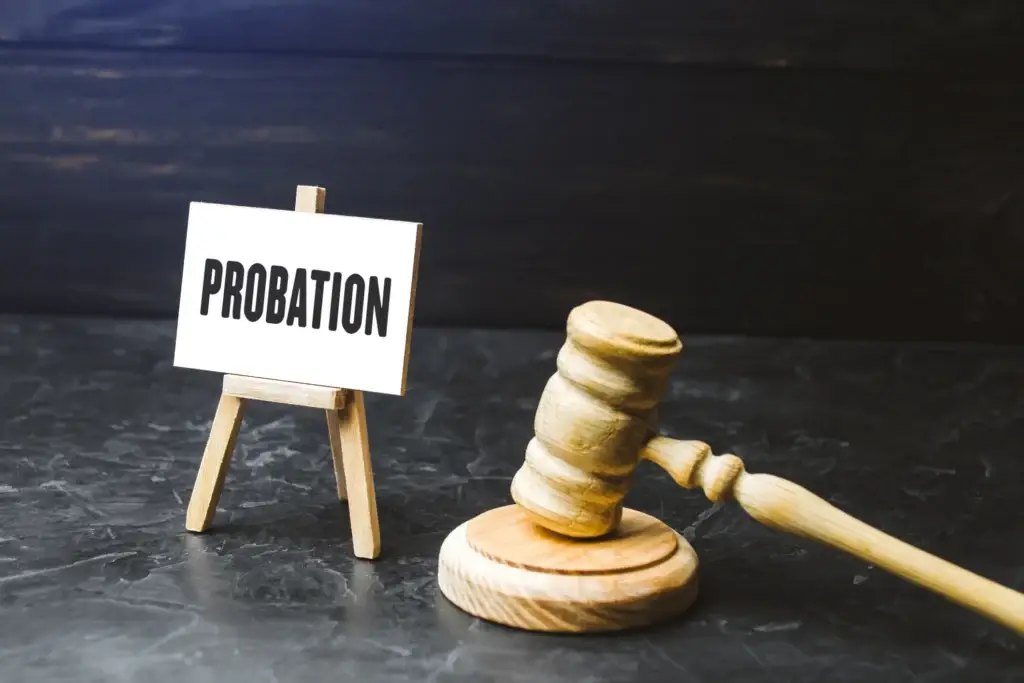April 21, 2025
Alcohol Awareness Class Certification Validity: How Long is Your Proof of Completion Really Good For?

If you’ve been mandated by a court, the DMV, a probation officer, or even an employer to complete an alcohol awareness class, receiving your official certificate of completion is a significant milestone. It’s tangible proof that you’ve fulfilled a specific educational requirement. However, a crucial question often arises after obtaining this document: “How long is my alcohol awareness class certification valid?” Understanding the duration of your certification’s effectiveness is absolutely critical to ensuring continued compliance, avoiding potential future legal or administrative complications, maintaining driving privileges, or upholding professional credentials.
Navigating the rules around certificate validity can sometimes be confusing because there isn’t a single, one-size-fits-all expiration date that applies in every situation. The validity period depends heavily on the authority that required the class and the specific purpose for which the certification is being used.
In this comprehensive guide, we will clarify exactly how long alcohol awareness class certifications typically remain valid across different contexts. We’ll explore the key factors that influence certification validity, detail what potentially happens after a certification “expires” in various scenarios, explain how you can go about renewing or updating your certification if necessary, and highlight the significant benefits of maintaining valid proof of completion.
Understanding Alcohol Awareness Class Certification and What It Represents
An alcohol awareness class certification is the official document issued by a state-approved educational provider confirming that you have successfully completed their alcohol education program. It serves as formal proof that you have undergone the required coursework, demonstrated understanding (typically by passing tests), and met the program’s completion criteria.
Courts, Department of Motor Vehicles (DMV) offices (or their equivalents), probation departments, prospective or current employers, and even some insurance providers commonly require this certification as verifiable evidence that an individual has received education on alcohol misuse and its consequences.
When you successfully complete an alcohol awareness class – whether it was mandated by a court following an offense like DUI, DWI, public intoxication, or an underage drinking citation, or required by a workplace policy – the provider issues you a certificate. This document typically includes essential information:
- Your full legal name
- The name and accreditation details of the course provider
- The specific date you completed the course
- The duration or number of hours of the course you completed (e.g., 4-hour, 8-hour, 12-hour)
- A unique certificate identification number
- In some cases, a specific expiration date might be printed, though the validity period determined by the requiring authority is paramount.
This certification is a vital piece of documentation often required as proof of compliance to satisfy conditions of sentencing or probation, reinstate suspended driving privileges, maintain specific types of employment, or secure or maintain favorable insurance rates. To better understand the general requirements and structure of these approved classes, visit our comprehensive guide on Court-Approved Online Alcohol Awareness Classes: The Definitive Guide. The process usually involves completing the required hours of coursework and passing final assessments, details of which can often be found in a guide like Do Online Alcohol Awareness Classes Include Tests?
How Long is an Alcohol Awareness Class Certification Typically Valid? Deciphering the Factors
As mentioned, there is no single standard validity period for all alcohol awareness class certifications. The duration of its effectiveness is primarily determined by several key factors:
1. State Regulations and the Specific Court or Jurisdiction:
This is often the most significant determinant of certification validity, particularly when the class is legally mandated. Different states and even different county or municipal courts within a state can have varying rules.
- For Fulfilling an Initial Court Mandate: Generally, once you successfully complete an approved alcohol awareness class and submit the certificate to the court or probation department to fulfill the original requirement stemming from a specific offense, the completion is documented in your case file indefinitely. The certificate served its purpose for that particular legal requirement at that time. You typically won’t need to re-validate that same certificate for that specific closed case.
- For Driver’s License Reinstatement or Maintenance (DMV): When alcohol awareness certification is required by the Department of Motor Vehicles (DMV) or a similar state licensing authority to reinstate a suspended driver’s license or clear a hold, they may impose a specific time limit on how recently the class must have been completed. This recognition period for the certificate often ranges from two to five years. The DMV’s goal is often to ensure that the knowledge gained from the class is relatively current. Some states maintain databases where they can verify your completion directly. You may need to show a valid certificate if your driving record is reviewed for certain infractions or when renewing your license under specific circumstances. Can Alcohol Awareness Classes Help Restore Your Driver’s License? explores this topic in more detail.
2. The Purpose for Which the Certification is Required:
The reason you were required to complete the class directly impacts how long the certificate is considered “valid” by the requiring entity:
- Court-Mandated Requirements (Initial Offense): As noted above, generally considered fulfilled indefinitely once properly submitted and documented for that specific case.
- Court-Mandated (Ongoing Probation or Plea Agreement): If your probation terms or a specific plea agreement require you to maintain alcohol education or avoid further alcohol-related issues, the court may view an expired certificate (based on DMV or other standards) unfavorably if you have a subsequent issue. While the original submission fulfilled the initial order, ongoing compliance might imply keeping knowledge current.
- License Restoration or Maintenance: Validity is typically limited to a few years as determined by the state DMV. Regular renewal or completion of refresher courses might be necessary to maintain valid driving privileges in some states if future issues arise.
- Employer Requirements: If your employer mandates the class (e.g., as part of a safety program, due to a policy violation, or for a specific job role), they will set their own validity period based on company policy, often requiring recertification every one to three years.
- Insurance Provider Discounts: Insurance companies offering discounts based on alcohol awareness completion require proof of a currently valid certificate to apply the discount. They set their own rules for how long they will honor a certificate. Alcohol Awareness Classes and Insurance Discounts provides more information on this.
- Personal Growth or School Requirements: If you took the class voluntarily or for a school program, there are typically no formal validity or expiration concerns unless the school specifies otherwise.
3. The Accrediting Body and Provider (Indirect Influence):
While the provider doesn’t dictate the duration of validity set by external authorities, choosing a provider whose certification is accepted by the requiring authority is paramount. Only certificates from accredited, state-approved providers will be recognized in the first place. How to Verify if an Online Alcohol Awareness Class is Legitimate is essential reading to ensure you choose a legitimate provider whose certificate will be valid for your needs.
Understanding these potential consequences highlights the importance of knowing the specific validity requirements for your situation and being proactive about renewal if needed.
What Happens When Alcohol Awareness Class Certification "Expires"? Potential Consequences
If your alcohol awareness class certification is being relied upon for ongoing compliance or benefits and its relevant validity period passes without renewal, it could lead to several potential issues depending on the context:
- Impact on Driving Privileges: For individuals who needed the certification for driver’s license reinstatement, an expired certificate could lead to the suspension or invalidation of driving privileges again. The DMV may flag your record and require you to retake an approved course and obtain an updated, valid certification to legally drive.
- Employment Consequences: If your certification was a requirement for your job, letting it expire could result in disciplinary action from your employer. This could range from a warning or mandatory retraining to suspension or even termination for failure to comply with company policy or safety regulations.
- Insurance Premium Changes: Insurance companies that were providing a discount based on your valid alcohol awareness certification will likely discontinue that discount once the certificate is considered expired by their rules. This will result in an increase in your insurance premiums.
- Legal Repercussions (for Ongoing Requirements): If completing and potentially maintaining updated alcohol education was a condition of your ongoing probation, a deferred judgment, or a specific plea agreement, letting your certificate’s relevance lapse (according to the requiring authority’s standard) could potentially be considered a violation of those terms. This could lead to being called back into court, facing additional fines, extended probation, or potentially harsher penalties depending on the severity of the original offense and the terms of your agreement.
Understanding these potential consequences highlights the importance of knowing the specific validity requirements for your situation and being proactive about renewal if needed.
Renewing or Updating Your Alcohol Awareness Class Certification
If your alcohol awareness certification is nearing the end of its relevant validity period for a specific purpose (like DMV requirements or employer mandates), you may need to renew or update it. The process typically involves:
- Confirming the Specific Requirements: The first and most important step is to contact the authority that requires the certification (e.g., the DMV, your employer, your probation officer) to confirm their exact renewal requirements. Ask if a full course is necessary or if a shorter “refresher” or “renewal” course is acceptable, what the acceptable timeframe for completion is, and which providers they approve for renewal purposes.
- Finding an Approved Provider Offering Renewal/Refresher Courses: If a shorter renewal course is permitted, look for state-approved providers who explicitly offer these options. If not, you will need to enroll in and complete the full-duration alcohol awareness class again. Always ensure the provider is currently accredited and approved by the relevant state or authority. Use resources like Finding a State-Approved Alcohol Awareness Course Online to locate approved providers.
- Completing the Course: Enroll in the appropriate renewal or full course and complete all the required coursework and assessments.
- Submitting the New Certification: Upon successful completion, you will receive a new certificate with an updated completion date. Submit this new certification promptly to the authority that requires it to ensure continuous compliance and avoid any lapse in your privileges or benefits.
Many providers, including Courseable, offer convenient online options for both initial certification and renewal courses, making it easier to meet ongoing requirements without the logistical challenges of in-person attendance. Learn more about the differences between online and in-person options here: Online vs. In-Person Alcohol Awareness Classes.
Benefits of Maintaining Valid Alcohol Awareness Class Certification
Keeping your alcohol awareness certification current and valid for the relevant purposes offers several significant advantages:
- Avoid Legal Complications: Ensures you remain in compliance with probation terms, plea agreements, or DMV requirements, protecting you from potential fines, suspensions, or other legal issues.
- Maintain Driving Privileges: For license-related requirements, having a valid certificate ensures your continuous legal ability to drive, preventing unexpected suspensions or bureaucratic hurdles.
- Ensured Employment Compliance: For job-related mandates, maintaining a valid certificate keeps your professional status secure and reduces the risk of work-related disciplinary actions.
Continued Insurance Benefits: Allows you to continue receiving potential discounts on your car insurance premiums. Alcohol Awareness Classes and Insurance Discounts - Peace of Mind: Knowing you are fully compliant with all requirements provides significant peace of mind and reduces anxiety about potential future issues.
- Demonstrates Responsibility: Maintaining your certification shows a continued commitment to alcohol awareness and responsible behavior, which can be viewed favorably in various personal and professional contexts.
Not always. This depends on the rules of the authority requiring the renewal and the specific timeframe since your last certification. Some jurisdictions or employers may allow you to complete a shorter “refresher” or “renewal” course. However, if a significant amount of time has passed, or if the authority requires it, you may need to retake the full course. Always confirm the specific requirement directly with the mandating entity.
If the certificate is being submitted to fulfill the initial mandate for a specific case, the important date is the date of completion, not whether the certificate itself expired years later. However, if your certificate is required for ongoing compliance, such as a condition of probation or license monitoring, courts and probation departments typically require proof of a currently valid certification according to their specific standards. If its validity period for that ongoing purpose has passed, they will likely require you to complete an updated course and submit a new certificate.
Yes. Many state-approved providers, including Courseable, offer online options for both initial certification and renewal courses. This provides a convenient and flexible way to meet ongoing compliance requirements without needing to attend in-person classes again.
No. While some providers may print an expiration date on the certificate, the actual validity period is determined by the specific rules of the authority requiring the certification (court, DMV, employer, etc.). Always check directly with the requiring entity for their specific validity timeframe, as it overrides what might be printed on the document.
Ultimately, it is your responsibility to know the validity requirements set by the authority that requires your certification and to track the relevant dates. While some DMVs or employers might send reminders, you should not rely solely on this. Keep a copy of your certificate and note the relevant dates.
If you lose your certificate, contact the original provider who issued it. Reputable providers keep records of completion and can usually provide you with a duplicate or replacement certificate.
No. If you took an alcohol awareness class solely for personal education or growth without a specific external requirement, the concept of “validity” or “expiration” does not apply in a formal sense. The knowledge you gained is yours indefinitely.
No. The required length of the class (e.g., 8 hours) is determined by the offense and jurisdiction, while the validity period of the resulting certificate is determined by the authority requiring its use (e.g., the DMV says it’s good for 3 years for license purposes). These are independent factors. For more on class lengths, see: 8 Hour vs 12 Hour Alcohol Awareness Classes.
Letting a certificate expire by itself does not typically put an offense back on your record if it was properly recorded initially. However, if having a valid certificate was an ongoing condition of your probation or a plea agreement, then letting its validity lapse according to the requiring authority’s rules could constitute a probation violation or non-compliance with the agreement, leading to new legal issues related to the original case.
Practical Tips to Ensure Your Alcohol Awareness Certification Stays Valid
Staying ahead of potential validity issues is key to continuous compliance and peace of mind. Follow these practical tips:
- Understand the Specific Requirements for Your Case: As soon as you are required to take a class, clarify exactly why it is required and what the rules are for your specific situation from the court, probation officer, or DMV. Ask about validity periods if not explicitly stated.
- Choose Accredited, Recognized Providers: Always select a provider whose courses are officially approved by the state or authority requiring your certification. A certificate from an unapproved provider will never be considered valid.
- Keep a Copy of Your Certificate in a Safe Place: Store both a physical copy and a digital copy (like a PDF) of your certificate of completion in a secure and easily accessible location.
- Mark Relevant Dates Clearly: If there is a specific validity period or a date by which you might need to renew (e.g., for DMV purposes), mark this clearly on your calendar or in a digital reminder system.
- Set Calendar Reminders: Schedule reminders well in advance of any potential expiration date – at least three months ahead is advisable. This gives you ample time to confirm renewal requirements and complete any necessary refresher or full course without stress.
- Submit Certification Promptly: Whenever you complete a course (initial or renewal), submit the certificate to the required authority immediately to ensure your compliance is documented without delay.
Explore additional advice for successfully completing your alcohol awareness class here: Tips for Successfully Completing Your Alcohol Awareness Class. For answers to many other general questions about alcohol awareness classes, see our main FAQ page: Alcohol Awareness Class FAQs: Your Questions Answered.
Knowing you are fully compliant with all requirements provides significant peace of mind and reduces anxiety about potential future issues.
Final Thoughts: Proactive Compliance for Long-Term Security
Understanding that alcohol awareness certification validity is not a single fixed period but depends on the specific context of why it was required is essential. By being proactive, knowing the specific rules set by the mandating authority for your case, and choosing accredited providers for both initial and any necessary renewal certifications, you can confidently maintain compliance, safeguard your driving privileges and employment status, and avoid potential complications down the line.
Courseable is dedicated to helping individuals meet their alcohol awareness requirements efficiently and reliably. Our court-approved online courses are designed for both initial certification and convenient renewal, ensuring you receive a valid certificate from an accredited provider that meets state standards. We aim to make the process clear, affordable, and accessible.
Ready to take your alcohol awareness class or pursue renewal with confidence?
Enroll Today in Courseable’s Online Alcohol Awareness Classes. Courseable’s Online Alcohol Awareness Classes.
Disclaimer: Always Consult with Authorities
This article provides general informational and educational guidance only. It is not intended as, and should not be considered, legal advice, medical advice, or professional counseling. Laws and specific requirements regarding alcohol awareness class certification validity vary significantly by state, jurisdiction, the type of offense, and the requiring authority. You must always consult directly with your attorney, probation officer, the specific court involved in your case, the relevant state DMV or licensing authority, or your employer to confirm the exact requirements applicable to your specific situation and to definitively verify the acceptance, validity period, and renewal process for your certification. Ensure you choose an accredited provider whose certificate will be accepted.
Related Posts

Alcohol Awareness Classes and Probation: Understanding Your Requirements and Ensuring Compliance

How to Confidently Talk to Your Employer About a Court-Ordered Alcohol Awareness Class
Start Your Court Ordered Alcohol Class



